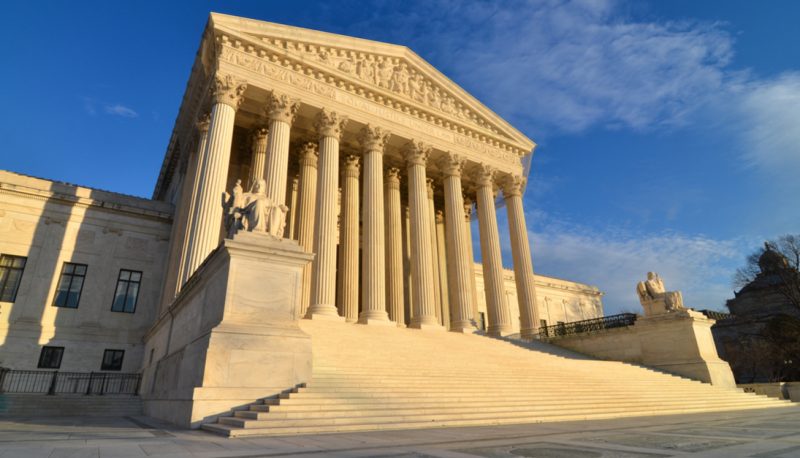“Confirmed Judges, Confirmed Fears” is a blog series documenting the harmful impact of President Trump’s judges on Americans’ rights and liberties. Cases in the series can be found by issue and by judge at this link.
Trump Second Circuit judge Steven Menashi wrote a decision reversing a district court and upholding the determination of the Bureau of Alcohol Tobacco and Firearms (ATF) to refuse to provide information to a gun safety group on suicides committed with firearms pursuant to a request by the group under the Freedom of Information Act (FOIA). The December 2020 decision is Everytown for Gun Safety Support Fund v Bureau of Alcohol Tobacco and Firearms.
As part of its efforts to combat gun violence, Everytown for Gun Safety sought records under FOIA from ATF concerning firearms used in suicides and attempted suicides in the US. Such information is contained in the Firearms Tracing System (FTS), an electronic database that contains data for over 6.8 million “traces” ATF has performed, under which ATF traces or tracks recovered firearms back to their previous owners and their manufacturers. ATF has prepared various reports and analyses of this data, some of which are shared with the public, and has at times responded to FOIA requests using FTS.
ATF refused to use FTS to obtain the data requested by Everytown, however, claiming that Congressional appropriations riders from 2003 to 2012 had forbidden the release of that information and that the records were accordingly exempt from FOIA. ATF maintained that the records were exempt from FOIA under Exemption 3, which generally relieves an agency of the obligation to disclose records “specifically exempted from disclosure by statute.”
A New York federal district court rejected ATF’s claim and ruled for Everytown. The court explained that in 2009, Congress enacted the OPEN FOIA Act, which requires that any future law could be considered an Exemption 3 statute only if it includes a “clear statement” that specifically “cites to” Exemption 3. ATF argued that this did not matter because there were a number of riders exempting FTS records that were enacted before 2009 and they “remain in effect.” The district court ruled, however, that later riders “are a substitute for earlier acts” and implicitly repealed them. Since the currently operative 2012 rider did not “cite” to Exemption 3, the court concluded that the 2012 rider does not qualify as an Exemption 3 statute and ordered ATF to disclose the records.
ATF appealed and, in an opinion by Trump judge Menashi, a Second Circuit panel reversed. Menashi agreed that it was the 2012 rider that was operative and that it did not explicitly refer to Exemption 3 as required by the OPEN FOIA Act. Menashi maintained, however, that this did not matter because, according to his view of precedent, an “earlier-enacted statutory requirement” like the OPEN FOIA Act “cannot prevent” the “plain import” of a “”later enacted statute” like the 2012 rider “from taking effect.” Menashi sent the case back to the district court “with instructions to enter judgment for the ATF” and dismiss the case.
There are several flaws in Menashi’s opinion, which conflicts with a recent decision by the Ninth Circuit that granted a FOIA request made to ATF for gun violence information in FTS. Initially, Everytown argued that ATF had waived the “earlier-enacted” argument because it did not raise it in the district court. This was part of the reason that the Ninth Circuit rejected the claim in its case and declined to reach the merits of the issue. Menashi did nothing more than state that the Ninth Circuit “declined to consider” the issue and argued that his court had the discretion to do so, even though the district court never had a chance to consider it.
In addition, Everytown pointed out that Menashi’s ruling would undermine other laws enacted by Congress that similarly seek to limit future legislation that may violate important rights or principles. In particular, Everytown pointed out that the Supreme Court has upheld the provision in the Religious Freedom Restoration Act (RFRA) that states that all future federal laws are subject to RFRA unless such a law “explicitly excludes such application by reference” to RFRA, comparable to the requirement of the OPEN FOIA Act. Menashi claimed that in the RFRA case, the Court did not specifically “repudiate” the “earlier-enacted” language in a previous decision that he relied on, but never truly explained why RFRA can establish a principle placing constraints on future legislation while the OPEN FOIA Act cannot.
Finally, Menashi rejected Everytown’s contention that its request fell within an exception to the rider that permits “publication” of “statistical aggregate data” concerning “firearms misuse.” Menashi claimed that this exception applies only when ATF decides to publish information “at its own initiative.” Yet the Ninth Circuit had explained carefully that the exception does apply to disclosure under FOIA that would make the information “generally known to the public,” which clearly would be the case here. Menashi rejected the Ninth Circuit’s holding, siding instead with Trump Ninth Circuit judge Bumatay’s dissent in that case.
Everytown pointed out that Menashi’s opinion “dramatically weakens” the OPEN FOIA Act and contradicts “the right to access government data on gun violence.” The group noted that it may seek to pursue the issue further in the courts. At least for now, however, Menashi’s ruling will have precisely those harmful effects in New York, Connecticut and Vermont, which comprise the Second Circuit.

